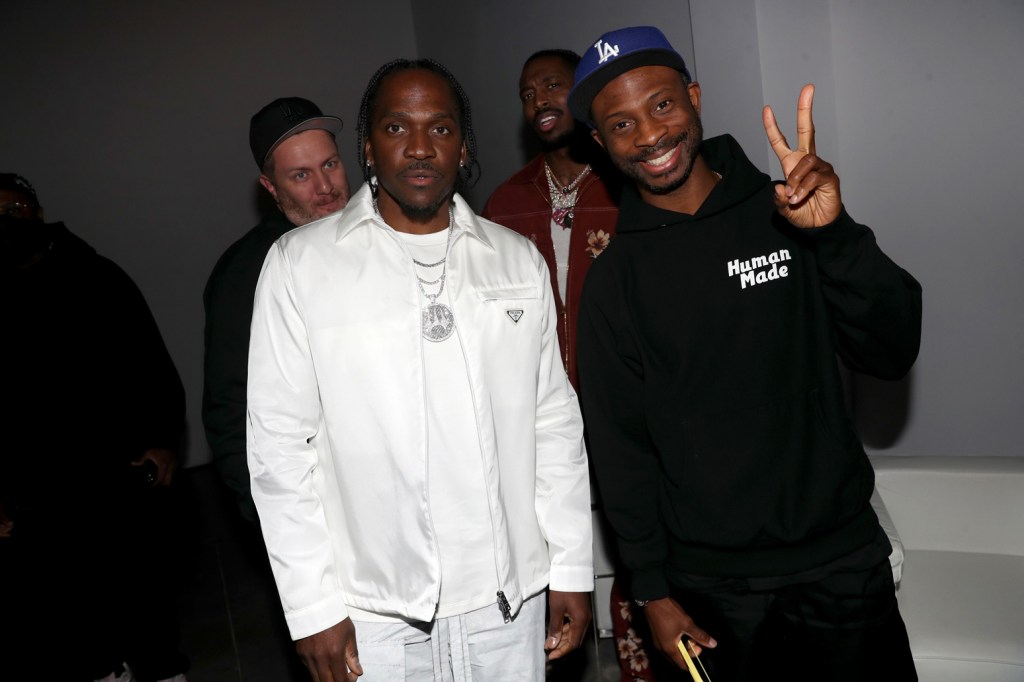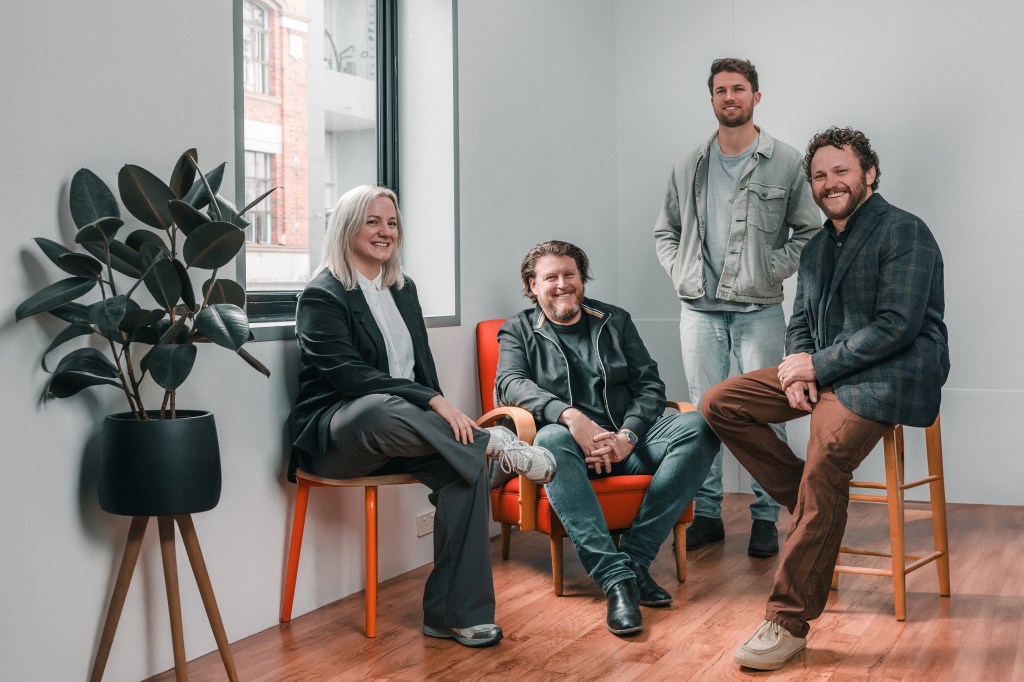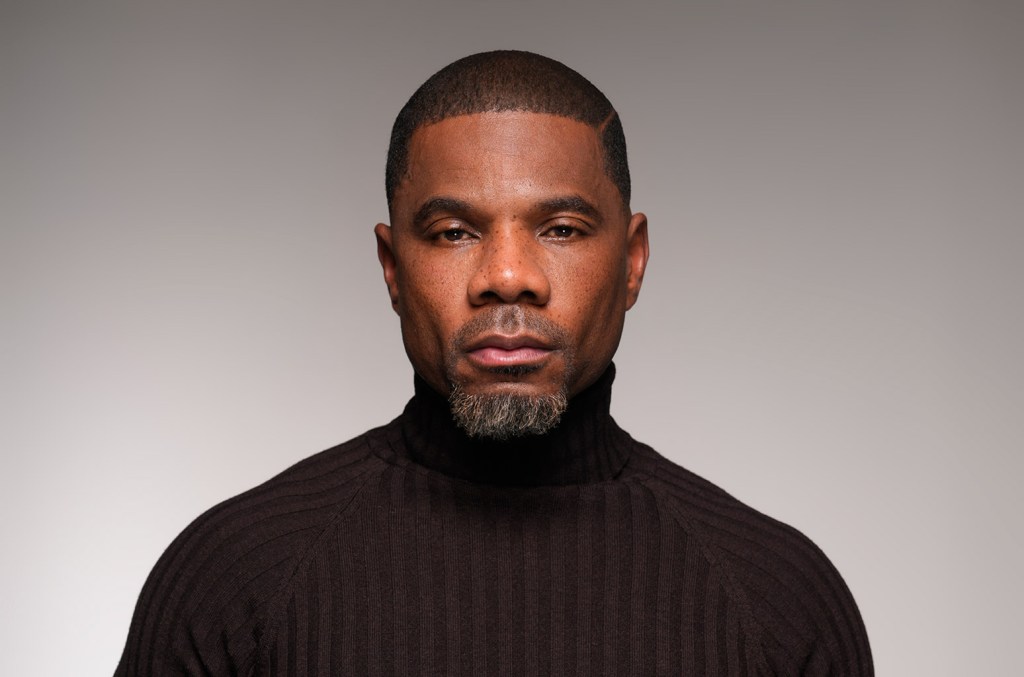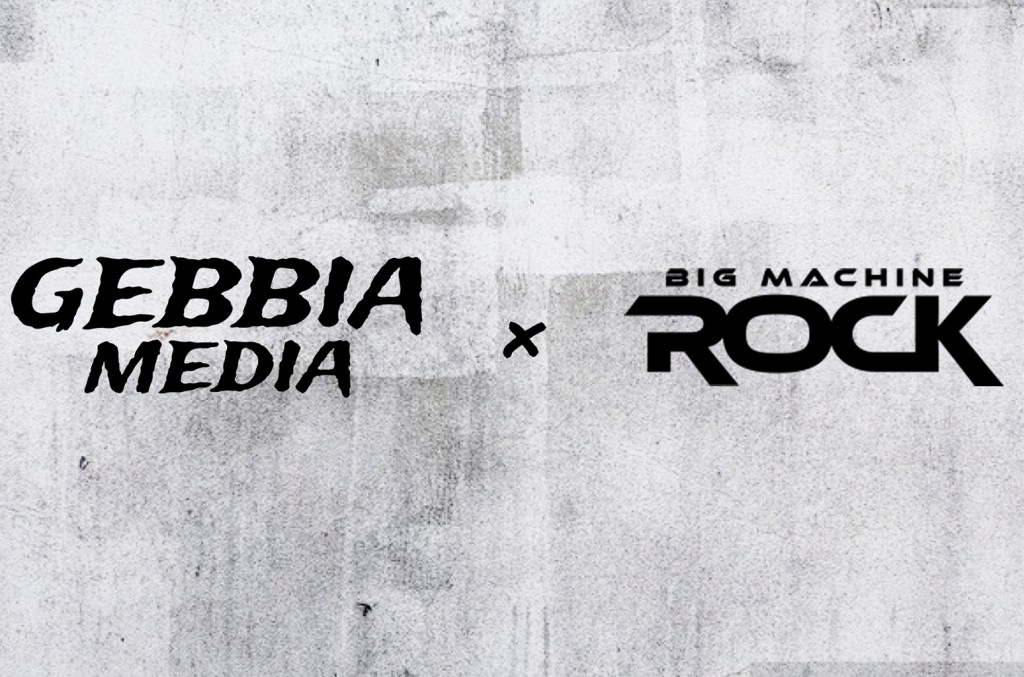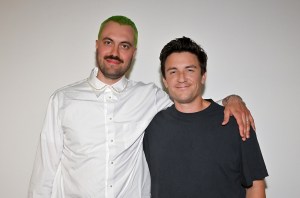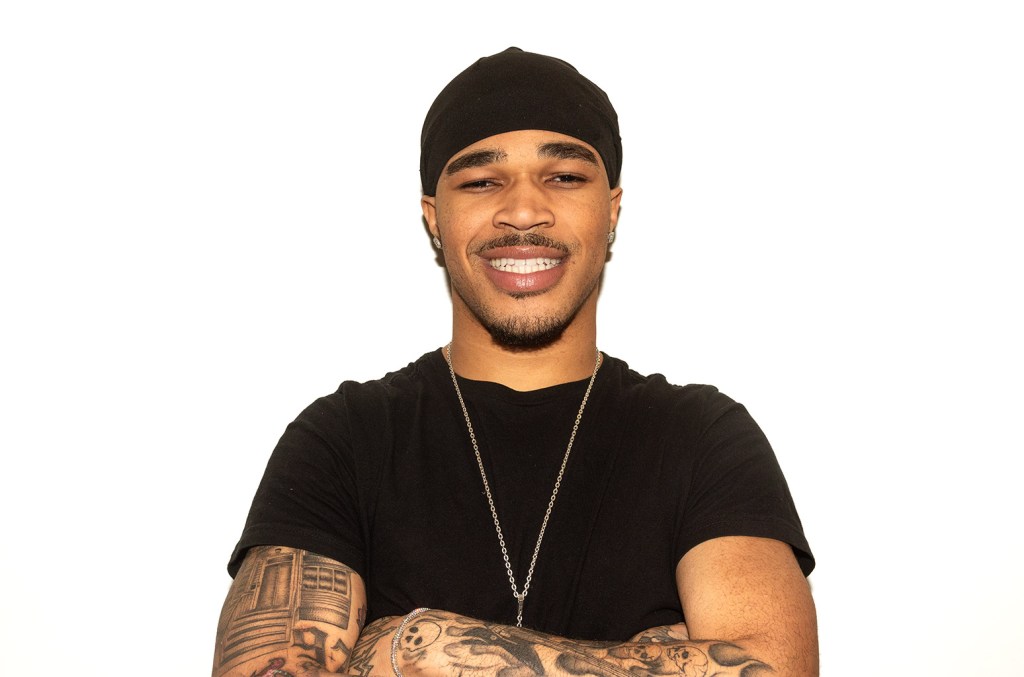Record Labels
Page: 6
Big Machine Label Group is set to celebrate its 20-year anniversary with a Big Machine 20 concert in downtown Nashville on Aug. 29, featuring performances from Sheryl Crow, Riley Green and Brett Young.
Explore
See latest videos, charts and news
See latest videos, charts and news
The free-to-the-public celebration’s will kick off the rebranded Borchetta Bourbon Music City Grand Prix NTT INDYCAR Series Championship weekend, and will include the fifth annual Freedom Friday event to honor military members, police, fire, first responders and frontline members. In 2024, the Freedom Friday event drew 118,000 attendees to Nashville prior to the NTT INDYCAR Series event.
“This year’s event has even more meaning as we celebrate 20 years of Big Machine,” said BMLG founder, chairman and CEO Scott Borchetta in a statement. “Nobody could’ve predicted our incredible success in a city we love so much. This is our thank you to Nashville and all the fans of our amazing artists and their music. This is going to be a once-in-a-lifetime event and one we’ll never forget!”
Trending on Billboard
Other performers on the lineup include newcomer Preston Cooper, as well as artists who have been part of Big Machine Label Group’s two-decade history, including The Band Perry, Danielle Peck, Danielle Bradbery, RaeLynn, Jimmy Wayne and Jack Ingram.
Borchetta launched Big Machine in 2005, following roles at labels including MCA Nashville and DreamWorks Universal. The label’s current roster includes Tim McGraw, Midland, Thomas Rhett, Rascal Flatts, Brantley Gilbert, Carly Pearce, RaeLynn, Jackson Dean and Lady A.
Along the way, the label has also been an advocate for artists’ rights, with Borchetta launching the “Music Has Value” campaign and working with terrestrial radio broadcasters to earn sound-recording performance royalties for the label and its artists.
The label’s biggest alum, Taylor Swift, is not named among the Big Machine 20 event’s participants. Swift has not been aligned with the label since leaving for UMG’s Republic label in 2018 and following the 2019 sale of Big Machine Label Group — including the pop superstar’s recorded catalog — to Scooter Braun’s Ithaca Holdings. In 2021, HYBE bought Ithaca Holdings. Swift recently regained ownership of her master recordings.
Sony Music has named Clio Massey and Matt D’Arduini as co-presidents of Arista Records, succeeding David Massey, who announced his retirement as president and CEO in April. The newly appointed leaders, both Arista veterans, are based in New York and will report directly to Rob Stringer, chairman of Sony Music Group.
In a statement, Stringer emphasized the “seamless transition” from Massey to Massey/D’Arduini and praised the duo’s complementary strengths and vision for the iconic label. “Clio and Matt are dynamic and forward-thinking executives who are best placed to build on the artist development they have been involved with in the first phase of the new Arista,” Stringer said. “Their skills complement each other neatly and as a partnership will lead to an exciting future for the label.”
Trending on Billboard
Massey got her start at Liberal Arts Music in 2013 and later joined Sony/ATV Music Publishing, where she worked in A&R from 2014 to 2018, signing notable songwriters such as Maggie Rogers and Geoff Warburton. She then joined Work of Art Publishing to collaborate with her father, David, and by 2020, was named general manager of WoAP as well as vice president of A&R at Arista. She’ll continue to oversee Work of Art Publishing, the company said.
“I look forward to continuing the work with the great artists and exceptional team at Arista, alongside Matt,” said Massey. “We’re excited to help shape and grow our group into its next chapter.”
D’Arduini has been a big part of Arista since its 2018 relaunch, contributing to the success of artists like Måneskin and Paul Russell, as well as playing a role in the soundtrack for The Idea of You. Prior to joining Arista, he spent 10 years at Robins Entertainment and six at Island Records, where he collaborated with David Massey on projects for artists including Nick Jonas, Demi Lovato and Shawn Mendes.
“We are eager to expand on Arista’s progress and reach over the last few years, cultivating even more talent at our company,” he said. “We’re also grateful for the leadership at Sony Music who believe in this organization and will help us advance our creative core.”
With new co-presidents in place, Arista believes it is positioned to build on its momentum and drive continued growth. The label has recently broadened its global roster, signing and nurturing rising stars such as Damiano David, JP Saxe, Lola Brooke, Jonah Kagen, and Sunday (1994).
Founded by Clive Davis in 1974 and home to icons like Whitney Houston and Carlos Santana, Arista was retired in 2011 and later revived by Stringer and the David Massey in 2018 with Davis’ blessing.
Over the weekend, Bloomberg broke the news that the Sony Music, Universal Music Group and Warner Music Group are in talks with Suno and Udio to license their music to the artificial intelligence startups. If the deals go through, they could help settle the major music companies’ massive copyright infringement lawsuit against Suno and Udio, filed last summer.
Billboard confirmed that the deals in discussion would include fees and possible equity stakes in Suno and Udio in exchange for licensing the music — which the two AI firms have already been using without a license since they launched over a year ago.
That sounds like a potentially peaceful resolution to this clash over the value of copyrighted music in the AI age. But between artist buy-in, questions over how payments would work and sensitivities on all sides, the deals could be harder to pull off than they seem. Here’s why.
Trending on Billboard
You need everyone on board
Ask anyone who’s tried to license music before: it’s a tedious process. This is especially true when a song has multiple songwriters, all signed to different companies — which is to say, almost all of pop music today. Since any music that is used as training data for an AI model will employ both its master recording copyright and its underlying musical work copyright, Suno and Udio cannot stop at just licensing the majors’ shares of the music. They will also need agreements from independent labels and publishers, too, to use a comprehensive catalog.
And what about the artists and songwriters signed to these companies? Generative AI music is still controversial today, and it is foreseeable that a large number of creatives will not take too kindly to their labels and publishers licensing their works for AI training without their permission. One can imagine that the music companies, to avoid a revolt from signees, would allow talent to either opt-out of or opt-in to this license — but as soon as they do that, they will be left with a patchwork catalog to license to Suno and Udio. Even if a song has one recording artist and five songwriters attached to it, it only takes one of those people to say no to this deal to eliminate the track from the training pool.
Is the expiration date really the expiration date?
Licensing music to train AI models typically takes the form of a blanket license, granted by music companies, that lasts between one and three years, according to Alex Bestall, CEO of Rightsify, a production music library and AI company. Other times it will be done in perpetuity. Ed Newton-Rex, former vp of audio for Stability AI and founder of non-profit Fairly Trained, previously warned Billboard that companies that license on a temporal basis should look out for what happens when a deal term ends: “There’s no current way to just untrain a model, but you can add clauses to control what happens after the license is over,” he said.
Attribution technology seems great — but is still very new
Many experts feel that the best way to remunerate music companies and their artists and songwriters is to base any payouts on how often their work is used in producing the outputs of the AI model. This is known as “attribution” — and while there are companies, like Sureel AI and Musical AI, out there that specialize in this area, it’s still incredibly new. Multiple music industry sources tell Billboard they are not sure the current attribution models are quite ready yet, meaning any payment model based on that system may not be viable, at least in the near term.
Flat-fee licenses are most common, but leave a lot to be desired
Today, Bestall says that flat-fee blanket licenses are the most common form of AI licensing. Given the complexities of fractional licensing (i.e., needing all writers to agree) with mainstream music, the AI music companies that are currently licensing their training data are typically going to production libraries, since those tend to own or control their music 100%. It’s hard to know if this model will hold up with fractional licensing at the mainstream music companies — and how they’ll choose to divide up these fees to their artists.
Plus, Mike Pelczynski, founder of music tech advisory firm Forms and Shapes and former head of strategy for SoundCloud, wrote in a blog post that “flat-fee deals offer upfront payments but limit long-term remuneration. As AI scales beyond the revenue potential of these agreements, rights holders risk being locked into subpar compensation. Unlike past models, such as Facebook’s multi-year deals, AI platforms will evolve in months, not years, leaving IP holders behind. Flat fees, no matter how high, can’t match the exponential growth potential of generative AI.”
There’s still bad blood
The major music companies will likely have a hard time burying the hatchet with Suno and Udio, given how publicly the two companies have challenged them. Today, Suno and Udio are using major label music without any licenses, and that defiance must sting. Suno has also spoken out against the majors, saying in a court filing that “what the major record labels really don’t want is competition. Where Suno sees musicians, teachers and everyday people using a new tool to create original music, the labels see a threat to their market share.”
Given that context, there is a real reputational risk here for the labels, who also represent many stakeholders with many different opinions on the topic — not all of them positive. For this licensing maneuver to work, the majors need to be able to feel (or at least position themselves to look like) they came out on top in any negotiation, particularly to their artists and songwriters, and show that the deals are in everyone’s best interests. It’s a lot to pull off.
Early in 2024, Clipse prepared to play a new album for their label, Def Jam. While these types of playbacks can be routine, this one was freighted with extra significance: The rap duo composed of brothers Pusha T and Malice had not released an album together since 2009.
Their comeback soon hit a speed bump. One song on the new album featured a guest verse from Kendrick Lamar, who spent part of 2024 in a venomous back-and-forth with Drake. And, as Pusha T recently told GQ, Lamar’s presence on the Clipse track made Def Jam’s parent company, Universal Music Group, uncomfortable.
“They wanted me to ask Kendrick to censor his verse, which of course I was never doing,” Pusha T told the publication. “And then they wanted me to take the record off [the album].”
Trending on Billboard
Clipse refused to make the requested changes, leading to the unravelling of Pusha T’s association with Def Jam — his label home for over a decade. Even though the rapper still owed Def Jam albums, he paid a seven-figure sum to get out of the deal, according to longtime manager Steven Victor. “If you’re an artist, your whole life is to create art and put it out,” Victor says. “If someone’s telling you that you can’t do that, or you have to do it within the confines of whatever box they put you in, that’s like creative jail.” (Reps for Universal Music and Def Jam did not respond to requests for comment.)
Pusha T has his own antagonistic history with Drake, which culminated in the scathing 2018 diss record “The Story of Adidon”; Victor says Pusha T’s verses have been facing strict label scrutiny ever since. Meanwhile, the fallout from Lamar’s battle with Drake is still ongoing: The latter has sued Universal Music Group, accusing the company of defamation over Lamar’s track “Not Like Us.”
Victor spoke with Billboard about the end of Pusha T’s relationship with Def Jam, and finding a new home for the rapper — and the Clipse album — at Roc Nation.
When you started to hear objections to the Lamar verse on the Clipse album, where were they coming from?
UMG has this department where they review lyrics. So it was that department. The real reason [that department] is there is to protect the artists and the label from lawsuits for copyright infringement. They do it for all the labels. Some labels adhere to it closer than others.
Let’s say you interpolate somebody else’s song. [That department] is there to make sure that the song is properly cleared. It’s not meant to be like, “You said XYZ about XYZ artist, so we’re not going to release this music.”
While you’ve been working with Pusha, have you ever had challenges with that department before?
In the beginning, no. But starting in 2018, yeah.
That’s the year Pusha released “The Story of Adidon.” He put that on SoundCloud, and it’s never been officially released on streaming services. Was that a way of getting around any internal objections?
Part of the reason, yeah, to avoid that. [Also] we never actually properly cleared it.
Pusha T mentioned two songs in his interview with GQ, Rick Ross’ “Maybach Music VI” and Pop Smoke’s “Paranoia,” where his verses were ultimately cut. Was that because of the same department’s scrutiny?
Yes. What happened on the Pop Smoke song is that UMG thought that he was dissing Drake on that song. He wasn’t, but they thought he was. Pop Smoke was released on my label [Victor Victor], and obviously I managed Pusha. So they came to me and said, “We’re not going to put this out now, unless you get Pusha to change these lyrics.” Even though it has nothing to do with Pop Smoke, they’re like, “Either he changes these lyrics, or we’re not putting the album out.”
What happened to freedom of speech? First of all, he’s not dissing Drake. But how do you get to tell him to just change his lyrics or you’re not putting this album out?
From what Pusha told GQ, this Kendrick verse they’re concerned about on the new record is not dissing Drake, either.
Yeah, I don’t know what their concern is. But they were like, “There’s a line here; we think it’s controversial; [Kendrick] needs to change it, or we’re not putting it out.” We’re not going to ask him to change the verse. You guys are wrong. Stop looking at this this way. None of this makes any sense.
It got to the point where the conversation became, “You can’t keep stopping this guy from being able to put out his art.” He’s a rapper. Every time he puts out an album or a song, you can’t listen to it to make sure that he’s not dissing somebody before you put it out. He has to think about what he’s saying before he’s saying it in the hopes that you might not think that he’s saying the wrong thing? Who could live their life like that?
I went to them and I said, “Let us put the song out somewhere else since you guys have an issue with it. You guys won’t have to stand behind whatever complications come from it. We’ll put the song out somewhere else, and we’ll license it back to you guys when the album comes out.” Their response was, “How about you just find somewhere else to put out Clipse? Just pay something to us and put it out somewhere else.”
My thing was, we can’t do that — Pusha and the Clipse are one thing. [At this point], he clearly doesn’t trust you guys. You guys haven’t been good stewards of his career.
So they said, “Find another deal, and let’s figure out a business.” They didn’t drop us. They were like, “Pay us this money” — which was an exorbitant amount of money, a s—t ton of money — “and we’ll let you out the deal.” That’s what happened. We paid them the money, an insane amount of money. It wasn’t, like, $200,000. It was a lot of money for an artist to come up with. They bought themselves out of the deal.
How many solo albums did Pusha have left on his deal with Def Jam?
I don’t really want to talk about that part. He had like three albums left.
So you had to pay seven figures to get out of the deal?
Yeah.
How quickly were you able to get another deal in place?
It happened simultaneously [with getting out of the previous deal]. It took a couple of weeks for us to figure out the paperwork. Again, it was a lot of money — we kept on going back and saying, “Can we pay you this amount of money and a part of the profit? Can we figure out a deal where we pay you as the guys make money from the new release, instead of coming up with this large sum of money [right now]?” They said no. They were like, “We want our money, and we want some of the profits.”
Once I knew that we had, in principle, a deal in place with Def Jam [to leave], I got on the phone with Jay-Z. I was like, “Look, this is what’s happening. We’ve been talking about doing X, Y, Z, together. There’s an opportunity here to do this album. What do you think?”
He hit me back right away, like, “You just made my day. Let’s figure it out. What do we need to get it done?” I went back to Pusha, and said, “Listen, Jay’s gonna give us a very artist-friendly deal, we get to own the masters, and they’ll put the marketing power of Roc Nation behind it. You guys are friends. It’s a great outcome.” We worked out the deal in less than 24 hours.
You had to pay Def Jam a lump sum to get out and also give a cut of what you make off the new record?
Yeah, we had to give them a cut also, which is insane. But the good thing about it is that Pusha is in control of his future. Now he has three deals in three different places. At the beginning of his solo career, we put out records independently with Mass Appeal; he owns those records. Then we did the deal with G.O.O.D. Music/Def Jam; when Kanye left Def Jam, we worked out an agreement with him where he gave Pusha his masters back on the G.O.O.D. Music side. And now we did this deal with Jay.
Pusha is having way more success creatively, financially and professionally, than he did at the peak of his career, which was when [Clipse’s] “Grindin’” came out. Smart and steady wins the race.
What appeals to you about taking the independent route?
I still think there’s a place for major record labels. But if you can get away with being at a place that understands the culture that you’re in a lot more, moves more nimbly, and you can get the same resources that you would from a major, why would you go to a major, especially with the way the deals are structured?
You can get everything and more from somebody that not only looks like you, but behaves like you, has the same mindset as you. You’re not dealing with layers and layers of corporate bureaucracy and nonsense. And all artists are not treated equally in the major record label system.
One thing you still hear about the majors is that, to the extent that radio matters, they have the muscle there, and they also have an international presence that’s hard to replicate.
Cap. I call cap. I’ve done it on a smaller scale and on the larger scale. All you need is a team. You can hire and you can outsource a great international team, a great radio team. For some artists it’s definitely more beneficial to be part of a major record label. But you don’t need to be on a major record label to find success.
Obviously Pusha T and Def Jam had a long relationship. Is it tough to see it end this way?
Pusha has been signed to Def Jam for almost 15 years. We’ve been there for a long time; we’ve seen different regimes come and go. But at the end of the day, if a relationship is not working, for whatever reason, it doesn’t make any sense to stay there, regardless of how much you might like it or might feel comfortable. And I don’t know if the amount of attention, focus and detail that we were looking for [on this album rollout] would have happened there anyway.
Is this the start of a potentially closer relationship between Victor Victor and Roc Nation?
I’d say so. There’s a lot going on, a lot of moving parts. But the focus right now is definitely this Clipse album.
GYRO Group has appointed music executive Matthew Rogers as its new chief commercial officer (CCO), marking a major leadership move for the Australian-owned digital music distribution and artist services company.
Rogers, who spent 14 years as chief operating officer at UNIFIED Music Group, brings a wealth of experience in scaling independent music businesses globally. In his new role, he will be instrumental in driving the growth of DistroDirect, GYRO Group’s hyper-local boutique distribution and catalogue management system, which now powers over 500 micro-distributors across 40 markets on six continents.
“We are incredibly excited to welcome Mat to the GYRO Group family,” said CEO Andy Irvine.
Trending on Billboard
“His extensive experience in driving growth and his deep understanding of the independent music landscape will be invaluable as we embark on the next phase of development for DistroDirect and the wider group. Mat’s strategic insights, global networks and commercial acumen will be crucial in achieving our ambitious goals.”
The appointment follows a significant track record: During his time at UNIFIED, Rogers oversaw the company’s transformation from a seven-person Australian operation into a 100-person international enterprise with offices across Australia, North America and Europe. He played a key role in building the heavy music label UNFD and developing STL Tones into a major player in music software and plugins.
Rogers was also pivotal in UNIFIED’s early response to the landmark Raising Their Voices report in 2022, helping to implement progressive strategies around mental wellbeing, workplace safety and industry culture.
He has served over seven years on the board of the Australian Independent Record Labels Association (AIR), as well as four years on the board of the Worldwide Independent Network (WIN), including two years as vice president.
“The move marks a homecoming for Rogers, who returns to a Brisbane-based company nearly 20 years after relocating interstate,” said CMO and co-founder Vivienne Mellish. “GYRO Group is proudly headquartered in Queensland, creating global opportunities for independent artists so we’re absolutely pumped to welcome Mat back to where it all started for him. His track record speaks for itself, and we are confident that his leadership will further strengthen our commercial strategies and market presence. We are thrilled to have his expertise on board.”
“I am thrilled to be joining the dynamic team at GYRO Group at such a pivotal time,” added Rogers. “Having witnessed the company’s impressive growth and commitment to the independent music community, I am eager to contribute my experience to further develop DistroDirect and support GYRO Group’s ambitious international expansion plans. Joining a Queensland-based company after many years interstate feels like a natural and exciting next step.”
With offices across Australia, the U.S., the U.K., Canada, Brazil, the Philippines and India, GYRO Group now represents several brands including GYROstream, DistroDirect, GROUP SPEED and Soothe Sounds. Independent artists using GYRO services have secured ARIA wins, Grammy nominations, No. 1 records and global chart placements. Notable names on their roster include Dom Dolla, ONEFOUR, WILLOW, The Amity Affliction, Lithe, Emma Memma and more.
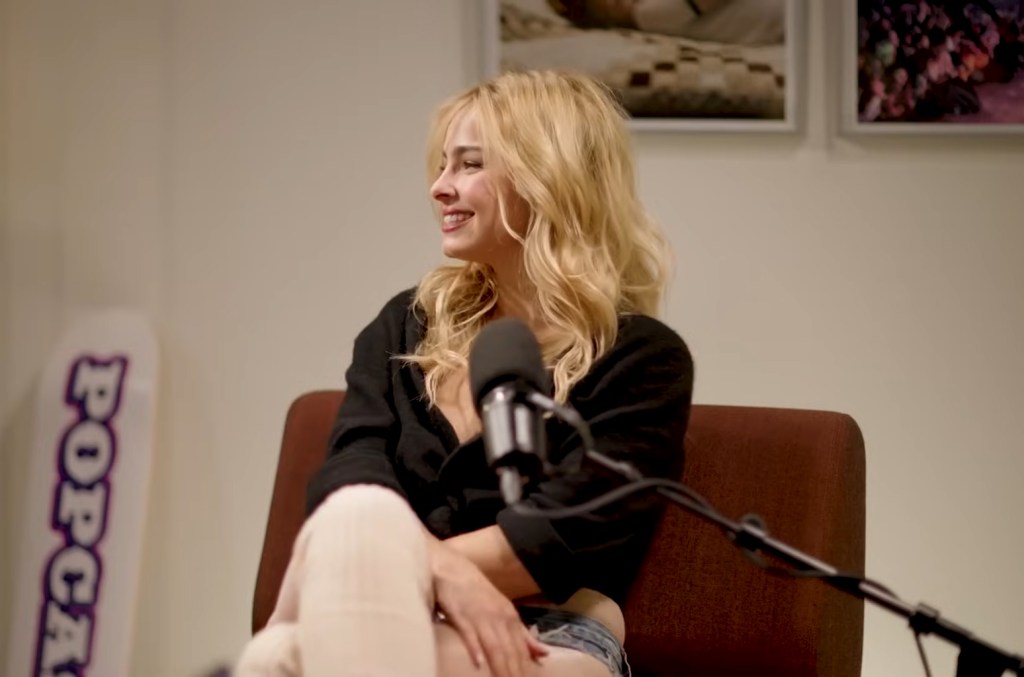
Addison Rae is on the verge of pop superstardom, but there was once a time when she was a rising TikTok star and a college student looking to get by. Rae joined The New York Times‘ Popcast on Friday (May 30), where she reflected on her time at Louisiana State when she was getting paid […]
Gospel icon Kirk Franklin is joining forces with Insignia Assets, a new entertainment venture established by Norman Gyamfi and Jonathan Jay. This collaboration unites Franklin’s companies, Fo Yo Soul Recordings and CLTRE Lab, with Insignia Assets’ diverse portfolio, which includes recorded music and publishing, television, film, touring and events.
In addition to this partnership, Franklin will serve as Insignia Assets’ chief of creative services.
Franklin, who will be honored with the BET Ultimate Icon Award during the 2025 BET Awards next Monday night (June 9), shared: “This partnership with Insignia is bigger than business. It’s about building a platform where our stories, our faith, and our culture can live and breathe across every screen and stage. I’ve always believed in pushing Gospel beyond the margins and into spaces where it can challenge, inspire, and connect with the world in a real way. Joining forces with Insignia gives us the reach, the resources, and the creative freedom to do just that.”
Trending on Billboard
To kick off this exciting venture, Franklin will release a new single, “Do It Again,” on Friday (June 6). Additionally, his media production company, CLTRE Lab, will collaborate with Insignia Assets’ 3 Diamonds Entertainment division on Den of Kings, a new dinner conversation series hosted by Franklin. The first episode, focusing on “Fatherhood features guests D.C. Young Fly, Kountry Wayne, Lou Young and Devale Ellis, and premieres on Franklin’s YouTube channel on Father’s Day, June 15.
Under this deal, 3 Diamonds Entertainment will be the production partner on select scripted and non-scripted CLTRE Lab projects, providing production services and funding to showcase original storytelling across various formats.
“We’ve worked with Kirk for some time now—from the 2022 release of the multi-GRAMMY®-winning collaborative album, Kingdom, to producing sold-out arena tours with him consecutively over the past few years,” said Norman Gyamfi, co-founder and CEO, Insignia Assets. “Today, we’re thrilled to fortify and deepen our partnership by welcoming Kirk to our executive team, and by charting a course for the future with him from recorded music to touring, film/TV to digital media, and more. We are collectively very proud of this moment.”
A Black-owned and self-funded entertainment company, Insignia Assets’ music portfolio includes Christian and Gospel labels Tribl Records, Maverick City Music and Fo Yo Soul Recordings and R&B label Platform Sounds. Additional divisions include Undivided Entertainment for touring and event productions, 3 Diamonds Entertainment for television and film, as well as the Icho Group, the marketing engine of the diversified enterprise.
Insignia Assets aims to be a leading global entertainment company by delivering impactful to a diverse audience. At its core, Insignia Assets operates with a commitment to fostering collaborations with talented Black creators, visionary entrepreneurs and innovative professionals across all forms of entertainment.
Ron Hill, president of Recorded Music, TRIBL Music Group and head of touring, Undivided Entertainment said: “Kirk is not just an artist, he’s a cultural architect who has reshaped the landscape of faith and entertainment. This partnership with Insignia marks a new chapter, where shared vision and leadership come together to build lasting value, elevate culture, and shift the industry from within.”
Gebbia Media has acquired Big Machine Rock from HYBE America for an undisclosed price in an effort to move into the rock space.
Big Machine Rock has been part of Big Machine Label Group (BMLG), which was founded by CEO Scott Borchetta in 2005. SB Projects bought BMLG in 2019 and, in 2021, HYBE bought Ithaca Holdings, which included SB Projects and BMLG for $1.05 billion.
Big Machine Rock’s current roster includes Daughtry, Badflower, Sammy Hagar and Ryan Perdz. Since its move into rock in 2017, BMLG has placed hits across Billboard’s rock charts, including Mainstream Rock Airplay and Alternative Airplay, with past and present acts like Badflower, Cheap Trick, Daughtry, Friday Pilots Club, Ayron Jones, L.A. Rats, Motley Crue, Pretty Vicious, Starcrawler and The Struts.
“Growing up with incredible music by iconic artists like Sammy Hagar, Van Halen and The Doors, I recognize the importance of bringing rock to a new generation of listeners and fans who are ready to embrace it,” said David Gebbia, CEO of Gebbia Media, in a statement. “Big Machine Rock embodies the Gebbia Media approach: bold, cross-generational, and deeply in touch with the culture. This acquisition allows us to further our mission of empowering artists through investment in robust catalogs and cross-platform expansion.”
The move is also expected to expand Big Machine Rock’s global reach.
Trending on Billboard
Heather Luke-Husong will continue to serve as GM of the Nashville-based imprint.
“Gebbia Media’s investment will allow Big Machine Rock to grow into a full-fledged label completely focused on rock,” says Borchetta, who is also chairman of labels for HYBE America. “They will continue to be distributed through our family of labels and will stay connected to the Big Machine mothership.”
Gebbia Media is a subsidiary of Siebert Financial Corp.
“By bringing Big Machine Rock into the Gebbia Media portfolio, we’re aligning visionary talent with the resources and stability of a diversified financial platform, ensuring long-term growth and cultural impact,” said John J Gebbia, CEO of Siebert Financial.
In the music space, Siebert has also formed partnerships with Larry Jackson’s GAMMA and L.A. Reid LLC for the female trio SIMIEN, building on Gebbia Media’s alliance with artist and entrepreneur Akon.
As part of the agreement, Borchetta will join the advisory board of Siebert Financial.
Assistance in preparing this story provided by Keith Caulfield.
German dance producer Marlon Hoffstadt has signed with Capitol Records, in partnership with multi-faceted music company Goodlife Management and MC3. “Marlon and his team have been building something incredibly special,” Capitol Music Group Chairman & CEO Tom March tells Billboard. “He has risen to become one of the most exciting artists in dance music. We’re […]
After a blockbuster 2024, PlaqueBoyMax has announced he’s signing to Captiol Records and Field Trip Recordings. The streaming star made the announcement on Thursday (May 22), with the producer capping off an insane year after emerging in 2024 with his Twitch series In The Booth and Song Wars. He dropped off his debut EP 5$TAR […]

 State Champ Radio
State Champ Radio 


